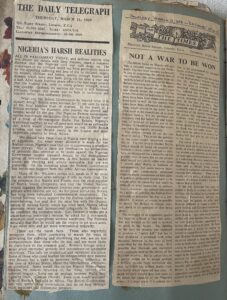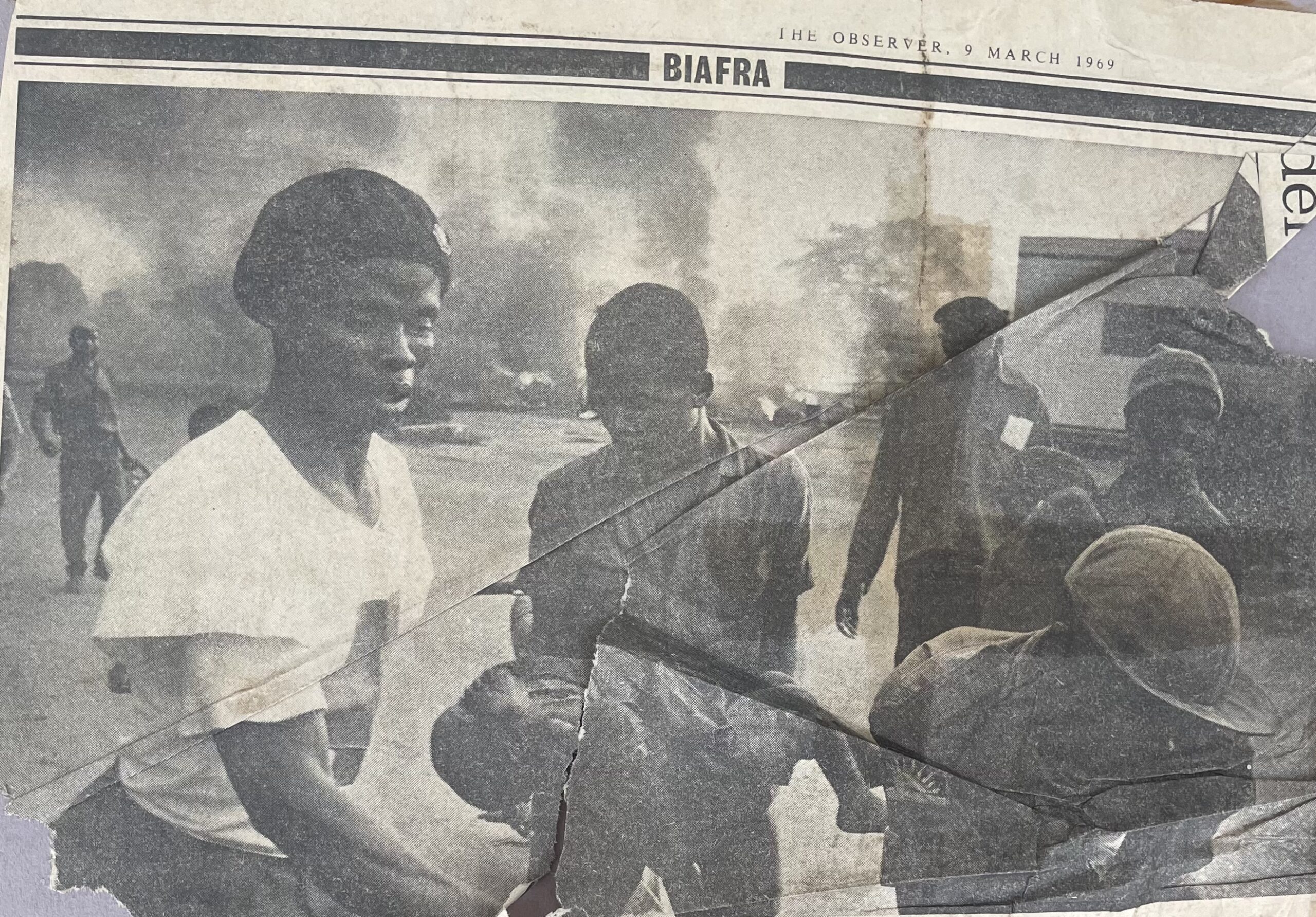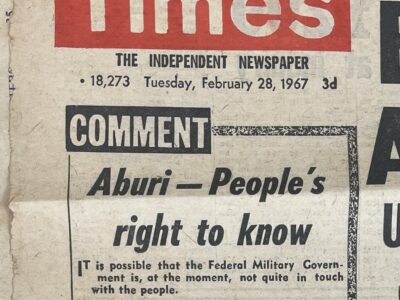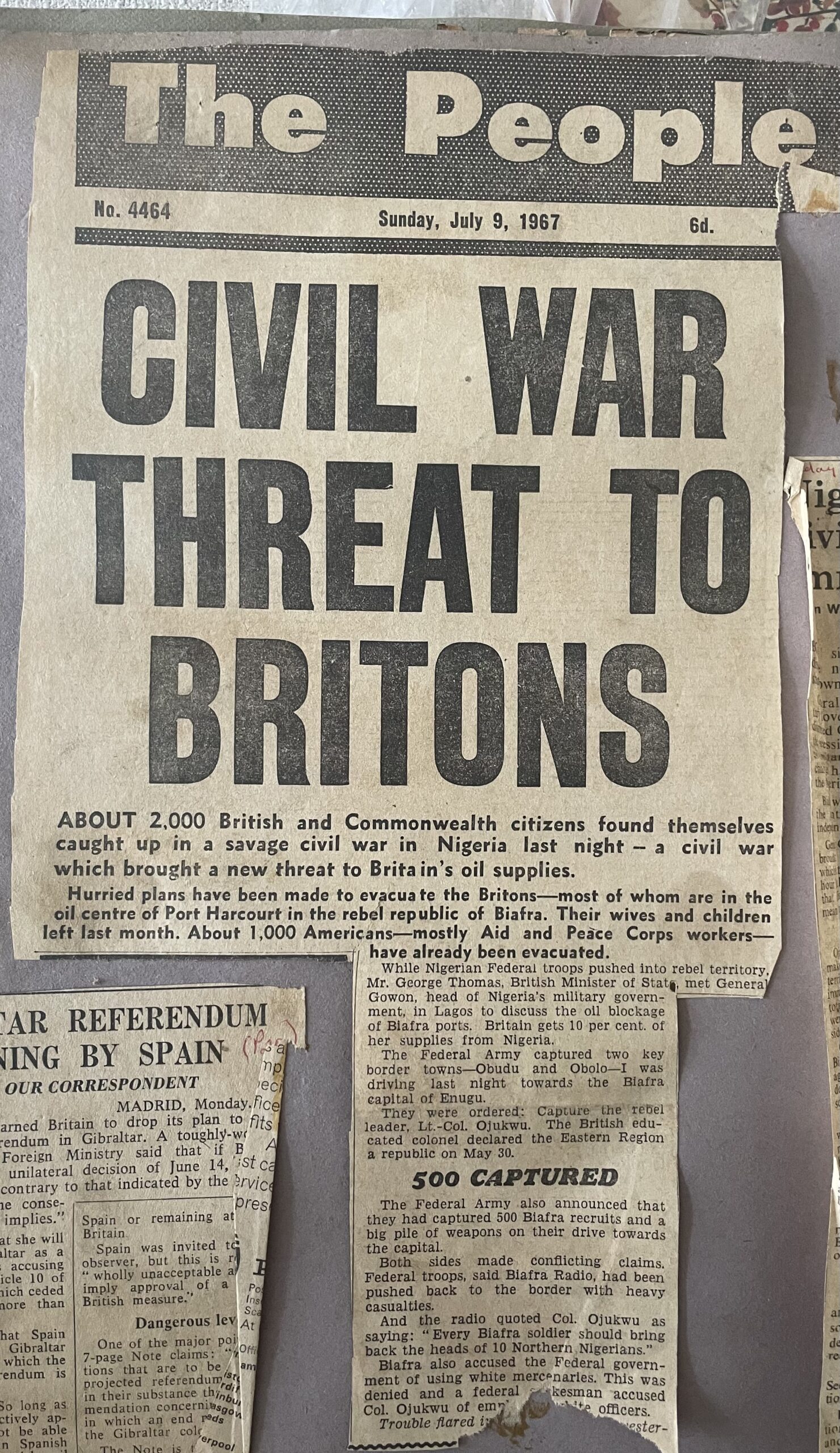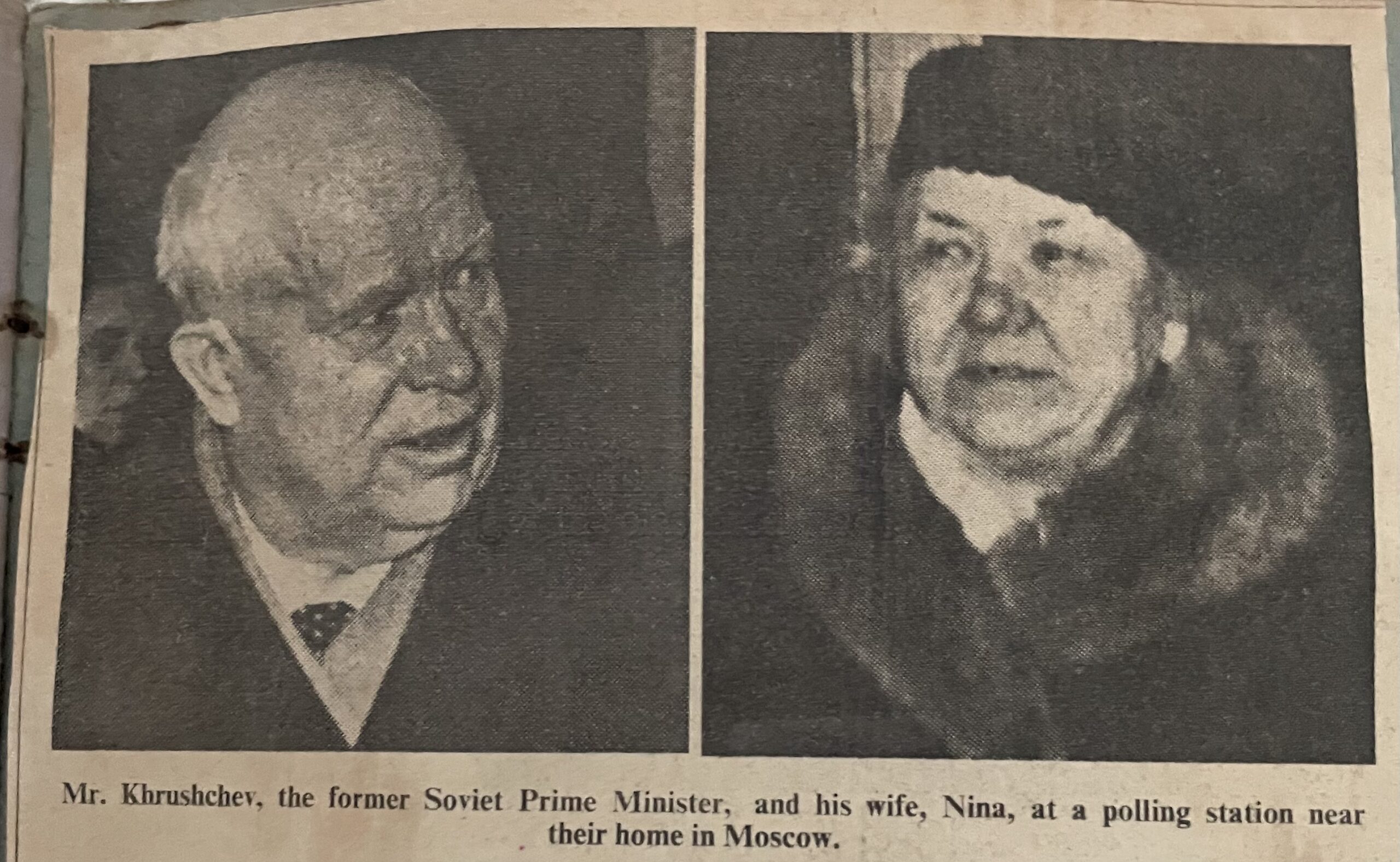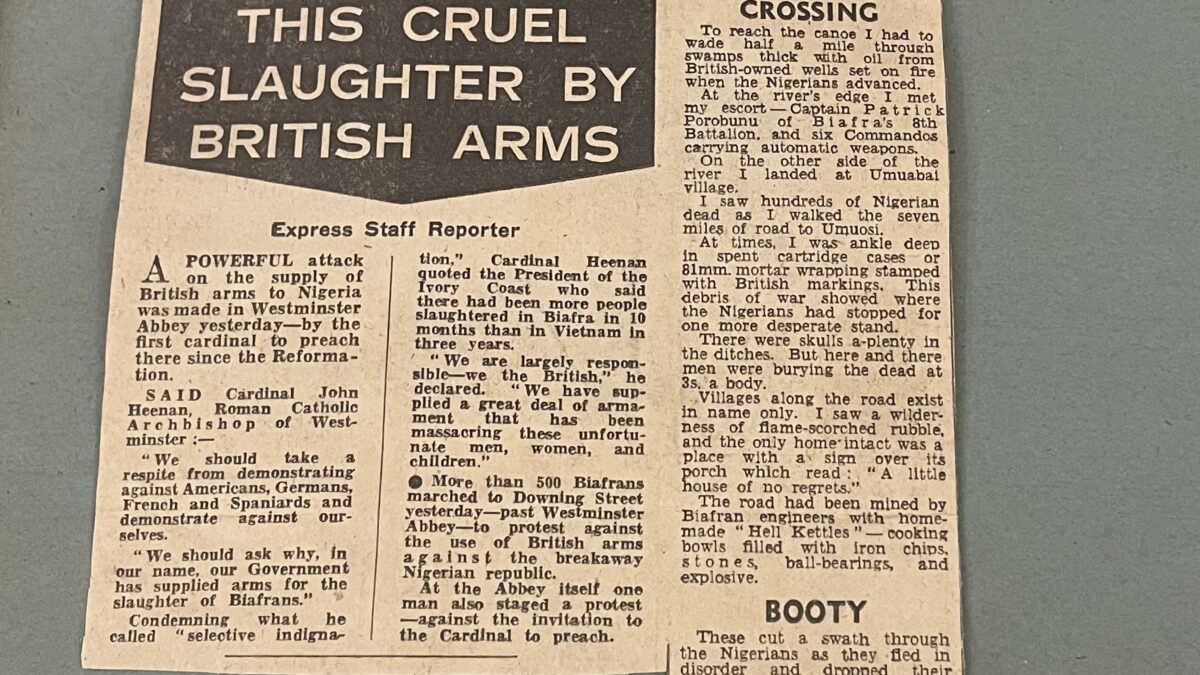But as the war started in July 1967, the Biafrans were able to offer stiff resistance to the efforts of the Federal forces every step of the way, this led to constant reappraisals of the war timetable by the Nigerian government and it kept announcing new so called “Final Pushes” to end the war, which never came, much to the chagrin of the British government, its main backer.
I must add here that the reasons why Nigeria was unable to overrun the Biafrans immediatley are many, but the primary reasons could be that: 1. Biafrans were genuinely scared of genocide by a victorious Nigerian side at the time, so they fought very hard as one would expect. 2. The Biafran Officer corps was superior to the Nigerian one, as they were once Nigerian Officers who were British trained and formed the bulk of the Nigerian forces Ofiicer cadre, before the war, and so, were better trained, and were able to lead a highly out-numbered and out-gunned army for so long. I won’t go into the other reasons for the prolongation of the war, but I’m sure the reader agrees with me here. But I love opposing views and these are welcome in our comment section, so please leave a comment below.
Nigeria’s inability to win the war quickly as it promised the world, meant that its successful blockade of Biafra was starting to yield very grim and sad results, which was the starvation of the Biafran populace, leading to the death of about 2 million people as of mid 1969. With the images of emaciated childred with big bellies deluging the TV screens across the world, the British government and media – who initially prefered a radio silence on the war, was forced to debate the war on its paliamentary benches.
The Harold Wilson led Labour government, was in full support of whatever measures the Nigerian government took to execute the war, and only put pressure when the public opinion or Biafran propaganda held sway. The opposition goverment of the Conservative more or less sided with the Labour government, so it was actually the Back-Benches of both parties that showed any real sympathy for the Biafran side.
From 1968, the war had entered a stalemate, and the Biafrans were the ones expanding territory. The British media which was pro-Nigerian was now frustratingly calling it an ‘Unwinable War’, due the inability of the Nigerian forces to win the war, despite its vast number of troops and modern weapons, plus the technical advice of its British and Russian military advicers on ground. At the war fronts, the Nigerians were encircled in Owerri – awaiting destruction a month later, trapped in Onitcha sinch March 1968, stuck in Aba since September 1968 and only trudging into Umuahia from Okigwe. The Biafrans on the otherhand were now on the offensive for the first time in the war and were on the up despite its paucity of weapons and manpower.
On the 13th of March, the British Parliament held a debate on the on going war, with respect to weapons supply and goverment policy and also relief effort. I present the opinions of 2 British newspapers; the Telegraph and Times – both are Right-leaning papers, but voiced different views, with one calling for truce and the other supporting the government’s position, both article were pre-empting the Commons debate later that day and the articles are printed on the same date 13th of March 1969.
These clips might be a lot to read, but I urge the reader to persevere and read it all, plus I’ve posted a link to the House of Commons debate on the same date 13th of March 1969, for further reading.
Click on image to enlarge and please leave a comment below:


